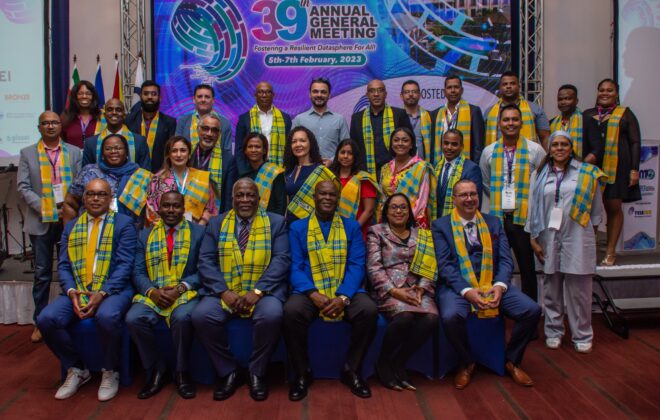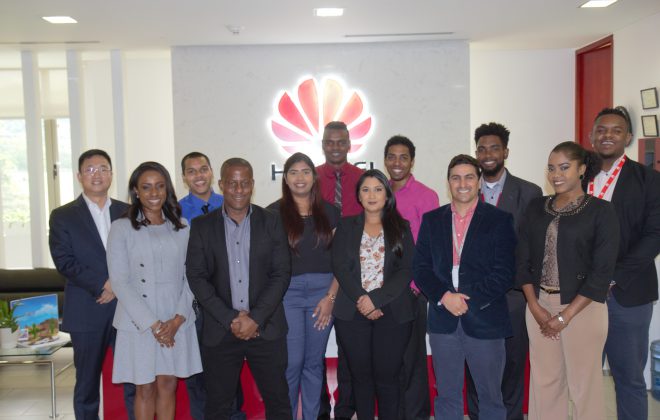CANTO Weekly Newsletter – BNamericas: 07/18/14
El Salvador: Number portability by February 2015 – El Salvador
Rioforte: Fitch cuts Oi, Portugal Telecom ratings – Brazil, Regional
Telefónica to reduce Telecom Italia stake – Regional
Portugal Telecom CFO resigns from board amid RioForte crisis – Brazil, Regional
World Cup wireless success business springboard for Comba – Regional
El Salvador: Number portability by February 2015 – El Salvador
El Salvador is planning to introduce number portability (NP) by February next year, telecom regulator Siget said.
Sigit met with the country’s mobile operators, who supported the long-overdue measure, local daily El Mundo reported, citing Siget head Blanca Coto.
NP was scheduled to be introduced in the first half of 2011, but the regulator and carriers had been unable to agree on who would bear the costs of implementation, estimated at between US$2.5mn and 5mn.
A private operator will carry out the NP program, and Siget and telcos will work together to prepare the terms of reference for a public tender, which will be published in August or September.
El Salvador’s NP will use the All Call Query (ACQ) model, where a third party will manage the porting process and database of ported numbers. This model, in some cases, allows users to port their numbers in a matter of minutes, Coto said.
El Salvador had about 8.99mn active mobile lines at year-end 2013, according to El Mundo.
Honduras is Central America’s latest country to introduce number portability, taking effect on April 30. Mobile operators Tigo and Claro invested more than US$5.2mn to implement the service there.
Panama and Costa Rica also have number portability in place.
Rioforte: Fitch cuts Oi, Portugal Telecom ratings – Brazil, Regional
Fitch downgraded the ratings of Brazilian carrier Oi and parent company Portugal Telecom to junk after Rioforte Investments did not repay a short-term debt owed to Portugal Telecom that matured on Tuesday.
Oi and Portugal Telecom long-term debt ratings were cut to BB+ from BBB-, the agency said on Wednesday.
Fitch also lowered the domestic credit rating of Oi on the Brazilian market to AA from AA+.
Rioforte is a unit of Portuguese conglomerate Espírito Santo Group (GES), holds around 10% of Portugal Telecom and is currently financially troubled. Portugal Telecom has a 2% stake in GES.
A few weeks ago it emerged that Portugal Telecom had acquired nearly 900mn euros (US$1.22bn) in commercial paper from Rioforte in two deals, calling it a treasury transaction.
The news prompted an internal crisis at Portugal Telecom, causing board resignations, regulatory probes and clarification requests from Oi and its shareholder BNDES. As feared by the market, Rio Forte failed to repay the first debt on Tuesday, entering into “technical default.”
The day after, Oi announced it had revised the terms of its planned merger with Portugal Telecom. Now, the Portuguese will have their stake in CorpCo, the company to be formed after the merger is completed, reduced to 25.6% from 39.6%.
Oi also said that the debt that matured on Tuesday, as well as a second paper worth 50mn euros that matured on Thursday, have a “cure” period of seven days to be paid before they go into default
First reactions following Oi’s announcement indicated that the market had received the new Oi-Portugal Telecom merger terms well, with shares recovering from sequential dips.
Fitch did not see it that way, though.
“Based on the assumption that Oi will not recover any cash from the defaulted Rioforte commercial paper, net leverage for the merged entity will increase a modest 0.2x-0.3x,” the agency said.
“While the increase in net leverage is not alone sufficient to warrant a ratings downgrade, Portugal Telecom’s decision to invest a significant amount of cash, close to 40% of its total cash and equivalents at end-2013, into the debt security of a 10% shareholder raises several concerns, and may indicate a higher risk tolerance for its investments, and a more aggressive management strategy that are not in line with an investment grade category risk profile.”
Fitch stressed it was confident that the merger would proceed based on the new terms announced by the companies.
Telefónica to reduce Telecom Italia stake – Regional
Telefónica is set to issue 750mn euros (US$1.01bn) in mandatory exchangeable bonds which will be converted into ordinary shares in Telecom Italia in 2017.
The move will effectively reduce the Spanish operator’s indirect stake in Telecom Italia to between 8.3 and 9.4% at that time, compared to 14.8% currently.
The bonds will accrue a fixed annual interest rate of 6.0% through 2017, at which time they will be converted into ordinary Telecom Italia shares for an exchange price of between 0.86 and 1.03 euros per share, Telefónica said in a release.
Bond holders will be able to gain a stake of no greater than 6.5% of Telecom Italia’s ordinary shares.
Telefónica recently announced that holding company Telco – Telecom Italia’s largest shareholder and in which the Spanish firm held a majority stake – was to be dissolved. The move sparked rumors that Telefónica was set to reduce its stake in Telecom Italia.
The Spanish operator increased its share in Telco from 46.2% to 66% last year. However, fears that the company could eventually acquire full control of Telecom Italia – whose Brazilian subsidiary TIM competes directly with Telefónica’s Vivo in the country – led Brazil’s antitrust watchdog Cade to force Telefónica either to reduce its share in Telco or find a new partner to share control of Vivo.
By complying with Cade’s demand to reduce its share in Telecom Italia, the possibility of market consolidation in Brazil now seems less likely in the short term.
Brazil’s mobile market currently has four strong players, and Telefónica’s move to up its stake in Telecom Italia led to market speculation that TIM could be taken over with the business split among rivals Vivo, Claro and Oi.
Portugal Telecom CFO resigns from board amid RioForte crisis – Brazil, Regional
Portugal Telecom CFO Luís Pacheco de Melo resigned from the firm’s board of directors amid a mounting internal crisis, Brazilian carrier Oi reported in a note to the market.
This is the third board “casualty” since Portugal Telecom announced its criticized investment in commercial paper from RioForte, a company of Portugal’s indebted Espírito Santo Group (GES)
According to Portuguese media, Pacheco de Melo had been questioned over his role in the controversial transaction.
The other members of the board who have resigned are two Brazilian businessmen related to Oi, which is in the process of merging with Portugal Telecom to create CorpCo, expected to be one of the largest telecom groups worldwide.
Oi challenged its parent company over the RioForte deal. Brazilian daily O Estado de S. Paulo reported on Monday that a team of financial officials from the local carrier, headed by Oi investor relations director Bayard Gontijo, went to Portugal to investigate the issue in detail.
The transaction also prompted an investigation by Portuguese securities commission CMVM. Brazilian development bank BNDES, which is a shareholder in Oi through Telemar Participações, declared the operation “inconsistent with minimum standards of good corporate governance” and also requested clarification from Portugal Telecom.
There are concerns that a possible default by Banco Espírito Santo, one of Portugal’s main private banks and part of GES, would affect the finanacial health of Portugal Telecom and Oi.
GES is the second largest shareholder of Portugal Telecom, with a stake of over 10%, while Portugal Telecom holds a 2% share in GES.
In the meantime, Portugal Telecom reported that the UBS AG bank acquired 5% of its shares and became its fourth largest shareholder.
World Cup wireless success business springboard for Comba – Regional
After helping install indoor wireless communication systems in Brazil’s World Cup stadiums, Hong Kong-based wireless solutions provider Comba Telecom expects to maintain business momentum locally.
The tournament’s telecom infastructure was hailed a success by both the Brazilian government and Fifa.
Comba, on the back of this, is planning to renew partnerships with Brazilian carriers and is eyeing new projects in the country as well as in other parts of the world, Comba Telecom managing director for Latin America Patrik Westfalk told BNamericas.
Comba was one of the providers hired by the consortium formed by Brazil’s five main mobile operators to deploy distributed antennas systems (DAS) – antenna networks shared by carriers – inside the stadiums.
Comba was selected to carry out work at eight of the 12 match venues. Radio Frequency Systems (RFS) deployed DAS in the other four.
Westfalk said: “The DAS exceeded all expectations during the World Cup.
“We’re already talking to operators that want to run it in other facilities other than stadiums, and we’re also negotiating with other arenas in Brazil and abroad.
“And, hopefully, we can get something in the 2016 Olympic Games in Rio.”
Westfalk did not reveal the value of the World Cup contract.
Comba’s partners in the DAS roll out included Merit (network design and engineering), Lemcon (installation) and, in the four stadiums where Wi-Fi could also be deployed, Ruckus Wireless and HP.
“In some cases, private administrators rejected Wi-Fi to explore it on their own, while in others operators judged it unnecessary,” Westfalk said.
“In the ones I went to, and that had Wi-Fi, I felt it was very helpful in doing the handover,” he added. “In Maracanã, for example, I was connected to Wi-Fi all the time.”
Fifa’s own Wi-Fi network, provided by Oi, was a hindrance in the arenas where Comba had set up general Wi-Fi systems, he said. The Fifa system required the company to shut down access points in some sectors of the arenas to avoid network overlaps.
To Westfalk, the DAS performed well overall inside the stadiums and could have been rolled out to provide connectivity in venue surroundings.
“I felt this was the only weak point,” he said. “If I did it again, I’d recommend to operators that DAS is also deployed at subway exits and along stadium access routes, for example.”
Comba has deployed DAS at global events including Beijing 2008 Olympic Games and this year’s Sochi Winter Olympics.
The company also has projects in major buildings in Dubai, Abu Dhabi, Hong Kong and Macau.
In Latin America, the company’s DAS has been installed in malls, offices and airports in Chile, Argentina and Mexico.
Copyright 2014 Business News Americas
Visit the CANTO website
The information presented and opinions expressed herein are those of the author and do not necessarily represent the views of CANTO and/or its members
l.



